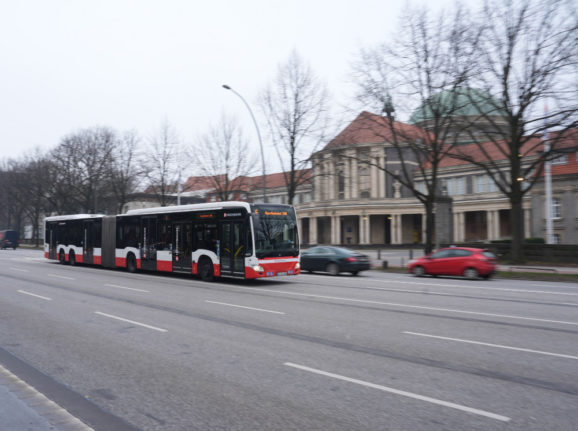The summer semester in Germany started in April, which means that many of the approximately three million students can take advantage of a discounted Deutschlandticket for €29.40.
The popular transport ticket, launched on May 1st of last year, allows for unlimited nationwide travel on local and regional busses and trains.
However not all Unis are taking part, especially in cases where their previous ‘semester ticket’ is cheaper. Here’s an overview of where the tickets is available to students around the country.
READ ALSO: Everything that changes in Germany in April 2024
Baden-Württemberg
In Ba-Wü, the “D-Ticket JugendBW” has been available since December for €365 per year. Like the Deutschlandticket, both tickets entitle the holder to use buses and trains on local transport throughout the Bundesrepublik.
Bavaria
Bavaria continues to go its own way with the €29 “Bavarian discount ticket” (Bayerische Ermäßigungsticket), which has been available to students, trainees and volunteers since September. It also allows for unlimited local and regional transport throughout the country, and for 40 cents cheaper per month than its nationwide competitor.
Berlin and Brandenburg
Of the 36 universities that already have semester ticket agreements with the Berlin-Brandenburg Transport Association (VBB), around 80 percent have opted for the Deutschlandticket at a monthly price of €29.40, according to the Berlin Senate Transport Administration. Students who opt for a semester ticket – which will also allow for use of regional and local trains nationwide – can expect to pay €32 in Berlin and €34 to €36 in Brandenburg.
READ ALSO: Working hours to visas: The new rules for international students in Germany
Hamburg and Hesse
The 120,000 students at 17 universities in Hesse and around 85,000 students at 25 universities in Hamburg have been able to use public transport throughout Germany with the new Deutschlandticket since the beginning of March or the beginning of April, depending on when their semester starts.
Rhineland-Palatinate
In neighbouring Rhineland-Palatinate, the Deutschlandticket for students will initially be launched in Mainz and Trier in the summer semester, with Koblenz to follow suit in the winter semester.
North Rhine-Westphalia
Most universities in Germany’s most populous state have also switched from the previous semester ticket to the discounted Deutschlandticket at the start of the new semester. They include the universities of Cologne, Düsseldorf, Münster, Bochum, Duisburg-Essen and Bonn, TU Dortmund University and the universities in Aachen and Bielefeld. Others are to follow in the winter semester.
Unlike the Deutschlandticket, the previous semester ticket was only valid regionally.

Saxony
Most students at universities in Saxony will be able to use the discounted Deutschlandticket from the summer semester – for example in Dresden, Leipzig and Zwickau. An agreement with Chemnitz University of Technology is currently being finalised, according to the Central Saxony Transport Association. .
Saxony-Anhalt
In many places, the regional semester ticket is considerably cheaper than the nationwide Deutschlandticket – for example at the universities in Magdeburg, Wernigerode and Stendal. As surveys among students are still ongoing, the changeover can only take place there for the winter semester at the earliest, a spokeswoman for the Magdeburg Student Union told DPA.
In Halle and Merseburg, on the other hand, students have been able to use discounted Deutschlandticket nationwide from April 1st.
Mecklenburg-Western Pomerania
In the northwestern state, only the University of Rostock is taking part. The University of Greifswald and the universities of Stralsund and Neubrandenburg have decided against the ticket.
Lower Saxony, Saarland, Schleswig-Holstein, Bremen
In Lower Saxony and Saarland, the Deutschlandticket for students will not be introduced until the winter semester. The same applies in the northern city-state of Bremen.
Germany’s northernmost state of Schleswig-Holstein is also aiming to offer the ticket for the 2024/25 winter semester. Planning is still ongoing, according to the University of Lübeck’s student association.
Thuringia
If at all, the Deutschlandticket for students will not be available until the winter semester, but likely only at major university locations such as Erfurt and Jena.



 Please whitelist us to continue reading.
Please whitelist us to continue reading.
Member comments